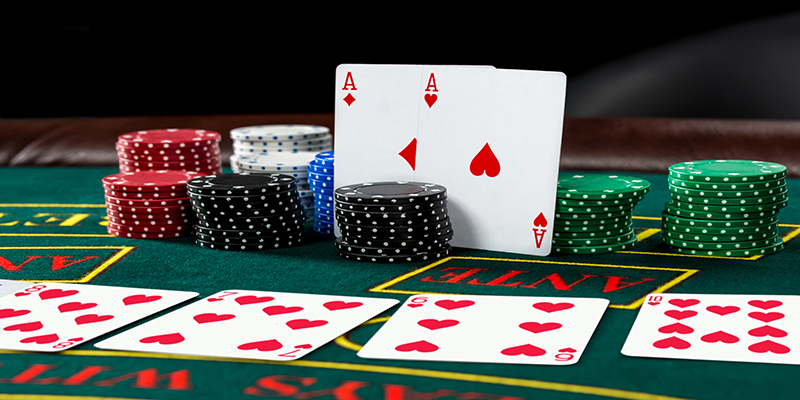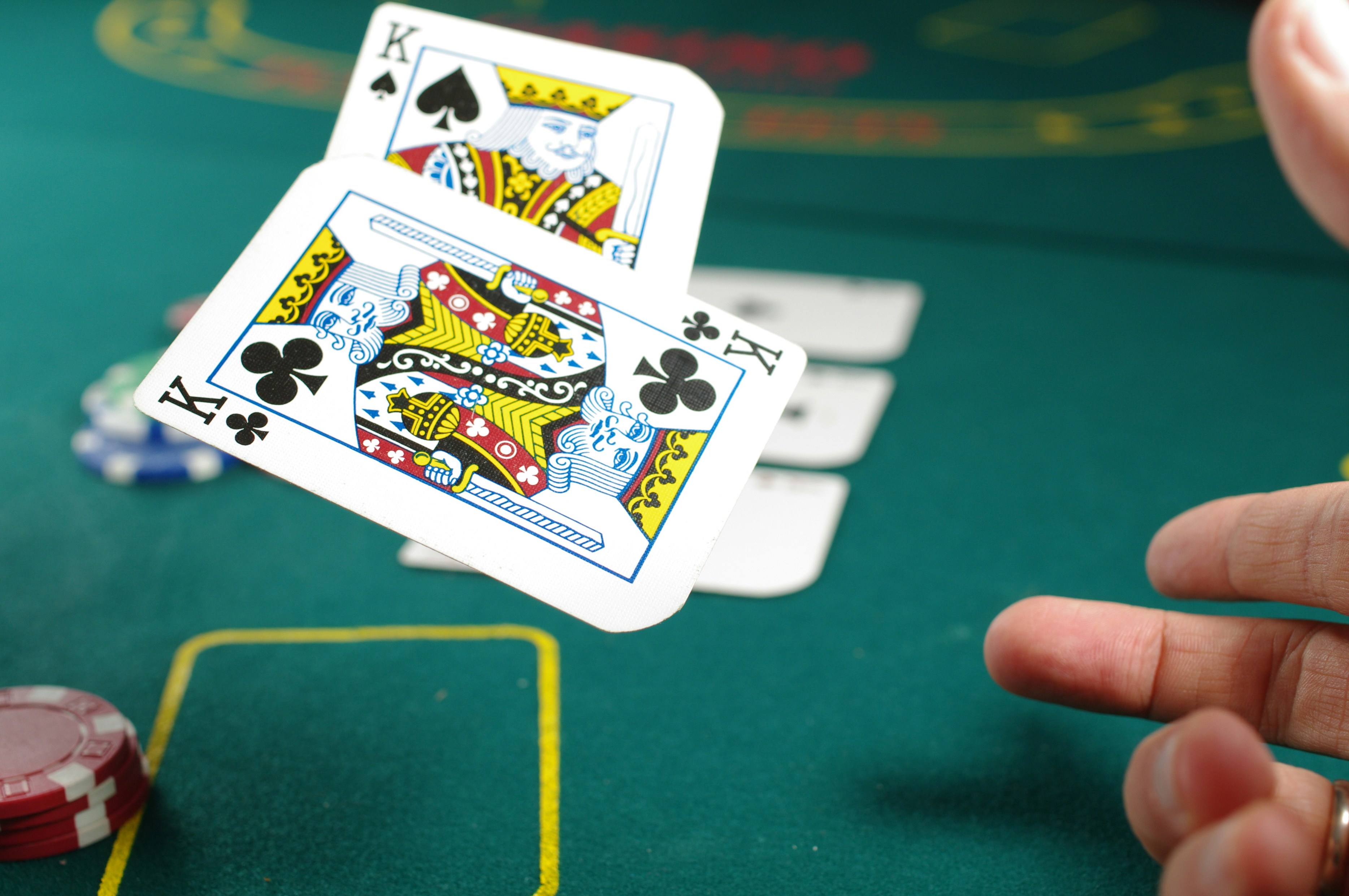What Is Short Deck In Poker? Rules, Hand Rankings & Strategies
Texas Hold'em has dominated the poker world for almost two decades, and many players would admit that a traditional game may be somewhat sluggish and monotonous. However, the original version of the game, especially at higher levels, is not an action game, but rather one of care and patience. So, to shake up the monotony, a group of poker players and enthusiasts devised Short Deck Poker.
Short Deck Poker has risen in popularity in recent years, with cash games and tournaments in this format currently being held all over the world. The game has a unique deck arrangement and several rules that differ from standard Texas Hold'em. Players can expect a lot of activity and huge hands in this game.
Big-name pros including Tom Dwan have embraced the game, and the World Series of Poker was even awarded the inaugural Short Deck bracelet in 2019. The game may be a fascinating alternative to Texas Hold'em, and this article will teach you all you need to know about this intriguing variant of poker. Let’s start right now.
What Is Short Deck In Poker?

Short Deck Poker, commonly known as Six Plus Poker, is a game similar to regular Texas Hold'em but with just a 36-card deck, thus the name "shorter" deck. This removes all deuces, threes, fours, and fives from the deck.
The reduced deck causes some significant alterations in strategy and even hand rankings. From then, the game follows the pattern that Hold'em players have grown accustomed to, with each player receiving two cards and betting as usual on the flop, turn, and river.
With the appearance of this exciting poker variation, the chances of a player producing a large poker hand with fewer cards are substantially higher, as are the possibilities of making sets, straights, and other powerful holdings.
While Short Deck Hold'em is similar to standard Texas Hold'em in many aspects, the major variation in the deck configuration makes the game wholly unique.
Short Deck Poker is a lively and thrilling game since most players are new to the game and the chance of holding huge hands is much higher.
What Are Short-Deck Poker Rules?
Although the game is new, Short Deck is evocative of poker's early days when there were fewer cards in a poker deck. The lower number of cards causes a few adjustments in hands and rules, although these may be easily adjusted, at least to knowing them.
In a typical game of Hold'em, your hand is usually regarded as a premium hand in Short Deck. The difficulty now is assessing how excellent that hand is in comparison to your opponents. As a result, players that prefer Short Deck enjoy all of the excitement and action that come with playing the game.
The first thing you should learn before sitting down at a Short Deck Hold'em table is the basic rules of the game. The variation is mostly comparable to No-Limit Texas Hold'em, with a few key variances in game flow. Below, we will discuss all the differences between the rules applied in the original game and those in this variation.
The Betting Rounds
To begin with, every player gets two cards, and the dealer button revolves around the table with a big and small blind. The player to the left of the large blind has the option of calling the bet, raising the action, or folding. This is repeated around the table.
When the betting is finished, the dealer will reveal the flip, which consists of three community cards. The player to the left of the button can then wager or check, and the process repeats itself around the table. Of course, players can raise and reraise exactly as in a typical poker game.
When the betting is finished, the dealer will reveal the turn card. The betting round the table resumes, with players checking, betting, raising, or folding. After that, participants will view the final card and place another stake. When this is finished, there is a showdown in which the best hand rakes the pot.

While various card rooms and home games have varying regulations for this relatively new game, the current standardized version has each player at the table paying an ante and the button paying a double ante each hand.
Players have a significant incentive to attempt and see a flop inexpensively by just calling the size of another ante with this blinds arrangement. Paying an ante on each hand, on the other hand, means you'll be bleeding chips quickly if you try to play too tight.
As a result of these factors, a normal game of Short Deck Poker will include a lot of limping as well as people raising their large hands. However, the hand value in this version of the game changes quite a little, and we will discuss them below.
To wrap up, if you can play No-Limit Texas Hold'em, Short Deck Poker should be a breeze, as the game follows the same flow and structure as its elder sibling. However, there are major changes between the two, the most significant of which is the way hands are graded in this fun variation.
Hand Rankings In 6+ Hold’em Poker
Aside from the deck size, which is substantially smaller in 6+ Hold'em, there are major variances in the way hands that are graded in Texas Hold'em.
When compared to regular Texas Hold'em regulations, the most crucial point to understand is that a flush defeats a full house, inverting the value of these two hands in the original game.
This is purely mathematical since it is apparently simpler to construct a full house than a flush in Short Deck Poker, which is why this rule is universal.
Another variation in hand rankings that isn't used in every game is that three of a kind can occasionally defeat a straight. Official games played in Macau or Las Vegas, on the other hand, still use a straight beat three-of-a-kind.
The rationale for retaining 7 straight as a more powerful hand is for playability, since making three of a type stronger would mean flopped straights are frequently drawn dead versus flopped sets, drastically reducing the value of attempting to construct a straight in the first place.
The ace card makes the ultimate difference in hand rankings in 6+ Hold'em.
The ace, as in Texas Hold'em, can be utilized to produce a low straight. In this scenario, a player with A 6 7 8 9 has a straight, which may appear counterintuitive.
The official hand rankings for Short Deck poker are currently as follows:
- Royal Flush
- Straight Flush
- Four of a Kind
- Flush
- Full House
- Straight
- Three of a Kind
- Two Pair
- One Pair
- High Card
Short Deck Hold’em Odds
The article has gone through the fundamentals of 6+ Hold'em, but what does the lack of any low cards mean for your odds? The answer is that it truly signifies quite a bit. All of the equities and odds you learned in Texas Hold'em have suddenly changed, with draws becoming much more strong and weak constructed hands like one pair losing value.
While the majority of hands in Texas Hold'em are won by a one-pair hand, this is not true in 6+ Hold'em. In fact, manufacturing one pair is so simple that you will almost always have one by the river.
When looking at the most basic odds, consider how much simpler it is to obtain solid beginning hands in Short Deck Poker. In this game, your chances of being handed a hand like pocket aces or pocket kings are doubled, which means you'll have a lot more chances to get into hands with premium holdings.
However, keep in mind that cards like AA or KK are no longer such huge favorites versus hands like JT suited or T9 suited. Because we know that one pair is rarely the winner, pocket pairs lose a significant portion of their value in the end.
Making a set in 6+ Hold'em is also much simpler, as there are fewer cards left in the deck by the time the flop is given out, increasing the likelihood of your two outs for the set.
When calculating the probabilities of making a straight, flush, or full house, you may now use the rule of 3 and 6 instead of the previous rule of 2 and 4. More specifically, to calculate your probabilities of winning the hand, multiply your outs by a factor of 6 if you are drawing on the flop and a factor of 3 if you are drawing on the turn.
Some of the fascinating and unique odds in Short Deck Poker include:
- There is a 22.9 percent probability that you will be handed connectors or a suited hand.
- A pocket pair has an 8.6 percent probability of getting dealt.
- Pocket aces have a nearly 1% probability of getting dealt.
- Short Deck Best-Starting Hands
Short Deck Best-Starting Hands
Big pocket combinations like AA, KK, QQ, and JJ should be played in Short Deck, even though they aren't as powerful. Hitting trips improves them even more, but don't be hesitant to abandon strong pocket pairs when there are large bets on the flop and the board appears to favor another great hand.
Suited connectors are important beginning hands in Short Deck because they let you make a straight or flush. In a short deck game, J♦T♦ will have around 50% equity against any offsuit AK and 47% equity versus A♣K♣. J♦T♦ has just roughly 40% equity versus A♠K♠ in a standard game of Hold'em. In the short deck version, these sorts of drawing hands may definitely pay off.
Can I Win At Short Deck Poker?
When many poker players first meet Short Deck Hold'em, they may wonder if they can actually have a chance to win the game. The game's gambling nature makes it a high volatility proposition, to say the least, but it also has the potential to be incredibly profitable, akin to Pot Limit Omaha (PLO).
Those who have played PLO at a high level are aware that the win rates are substantially greater than what is expected in Texas Hold'em, with the high volatility being the cost.
If you can grasp the rules of Short Deck Hold'em and build a solid winning strategy, surely you will have a high win rate in this game as well, with occasional significant winnings due to the game's highly equalized equities.
Where To Play Short Deck Hold’em Online
The only thing left to do is go online and start playing some 6+ games. Hold'em to obtain a feel for the game and begin designing your own strategy.
Because Short Deck Hold'em is still relatively unknown in the live poker world, we strongly advise you to start by playing online, and there are numerous prominent poker sites where you may do so in the iGaming world today.
If you are having trouble finding this transparent, secure, and offering poker variant, our smart filters can help. You just need to add the keyword “short deck” to the search bar on our homepage, and the system will automatically recommend the best reputable online casinos and also offer this game. From there, you should choose the first names on the list for the best gaming experience.
Summary
Short Deck is an interesting variation of traditional poker. The game comes with fewer cards, providing more drama as the player can have more powerful hands. To play this game well, you need to grasp its basic rules, which are not too different from the traditional version. However, there are some important notes that you must remember to avoid confusion while playing.
In short, the variation is a great alternative to the original game with more energy and excitement, and you can completely master it with less effort needed when the difference between the two versions is easy to understand.
















